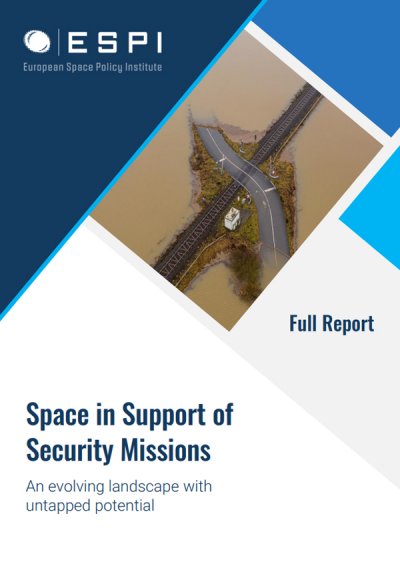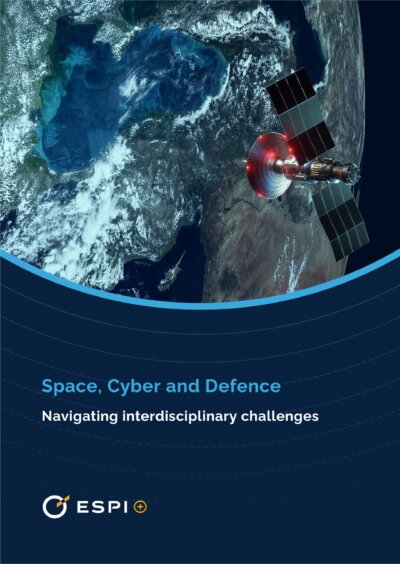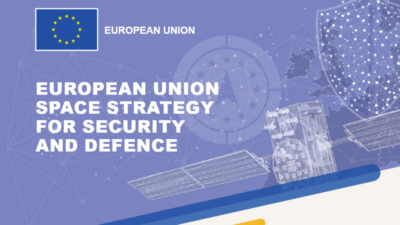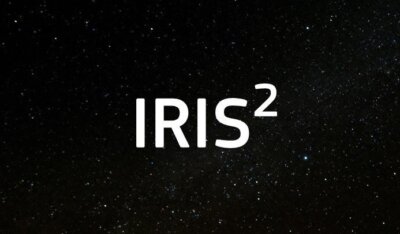Space technologies, data and services are essential tools for organisations tasked with law enforcement, crisis management or civil protection missions. Space-enabled capabilities play a key role in security-related developments across the globe, as has been the case in the following examples:
- Mapping the impact of volcanic eruptions near Tonga or at La Palma,
- Detecting human rights violations and forecasting extreme weather events in Africa,
- Tackling the increasing migratory flows to Europe, on both terrestrial and maritime routes
This report looks into the evolving “space for security” landscape (non-military activities) and notes a positive momentum for future developments in this field. In addition, with the evolving user requirements and expanding public and private investments in space-based solutions, the role of space for security is poised to further increase. This will likely raise new questions regarding technology developments, user engagement, commercial perspectives and synergies across different initiatives.
The report investigates in more detail two overarching themes:
- High-level policy, technology and user-related trends, and
- Outstanding needs and requirements of the user community (based on a consultation of 50 individual organisations).
Acknowledging that security has become an unavoidable dimension of modern space activities, the report concludes with key findings and recommendations on the next steps for Europe to better serve the needs of security users and drive greater adoption of space solutions by these actors.





